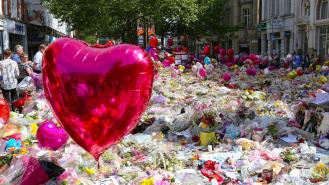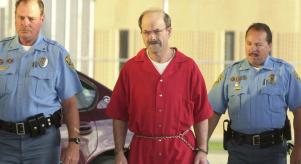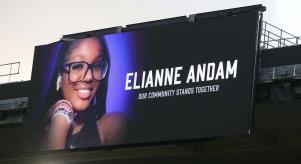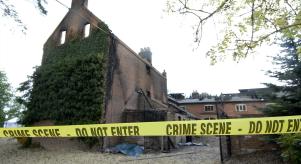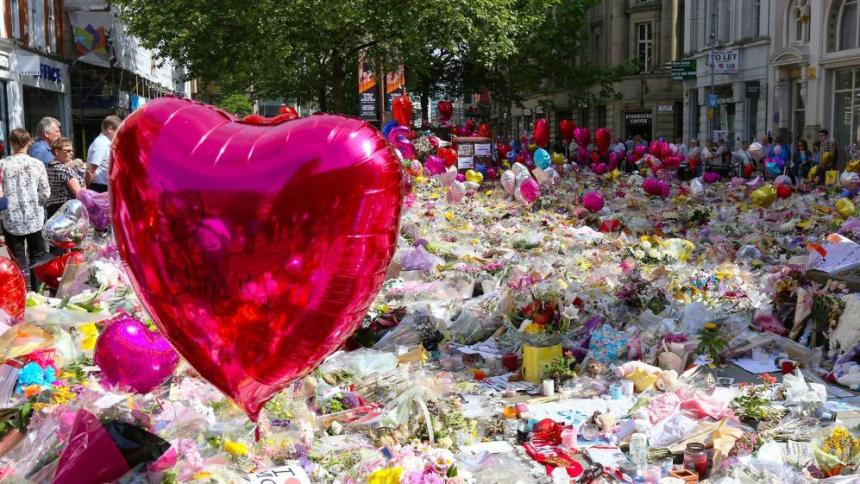
The Manchester Bombing: Seven years on
The chance to see their idol, Ariana Grande, at Manchester Arena, should have been one of the most joyous nights in so many young people’s lives. But, on 22 May 2017, a pop concert was abruptly transformed into a waking nightmare when a suicide bomber detonated a home-made explosive in the lobby shortly after the music ended, killing 23 innocent people.
It was the deadliest terrorist attack on British soil since the London atrocities of 7/7, and all the more distressing because of its target: a concert where droves of children would have naturally been present. Seven years on, the trauma of that night can still be felt in the national psyche.
The perpetrator was Salman Abedi, Manchester-born and of Libyan descent. The Libyan connection is integral to the investigation into how this once ordinary, football-loving lad from the north of England was radicalised and transformed into a murderer. His family settled in Manchester after fleeing the infamous regime of Muammar Gaddafi – popularly known as Colonel Gaddafi. But they had by no means left the tumult of their home country behind.
His father, Ramadan Abedi, has been linked to a militant Islamist organisation known as the Libyan Islamic Fighting Group, which sought to topple Gaddafi and install an Islamist government in his place. Indeed, he was reportedly a key figure in what has been described as a “culture war” in the large Libyan exile community between hardline conservatives and the more liberal progressives. In 2011, Abedi Sr took part in the revolution against Gaddafi, and it’s thought Salman Abedi was also embroiled in that upheaval.
According to those who knew him and his family, this experience fundamentally changed Salman Abedi. Prone to fits of anger, he worried fellow worshippers at his local mosque for his increasingly radical views. After the bombing, an imam recalled that “Salman showed me a face of hate” following a sermon which criticised Isis. The exact path Salman Abedi took to terrorism remains open to debate – some have pointed to his connection with Mancunian Isis recruit (and recruiter) Raphael Hostey, who was killed in a drone strike in 2016. It’s significant that Isis did indeed take “credit” for the attack, calling Salman Abedi a “soldier of the caliphate”.
We should also be thinking about the way the community of Manchester came together in a show of unity and love in the aftermath of the atrocity.
One Love Manchester Benefit Concert
But many will argue that, seven years later, it’s not Abedi we should be thinking about now, but the victims of his senseless attack. Victims like Saffie Rose Roussos, who was just eight years old when she was killed by his crude bomb, and who was described by her headteacher as “simply a beautiful little girl in every aspect of the word”. Or Martyn Hett, who loved Ariana almost as much as he loved Corrie’s Deirdre Barlow (and had the Deirdre tattoo to prove it).
We should also be thinking about the way the community of Manchester came together in a show of unity and love in the aftermath of the atrocity. This was exemplified in the One Love Manchester concert, which took place just weeks after the bombing, and featured appearances by some of the biggest stars on the planet. Including, most poignantly, Manchester icon Liam Gallagher.
And, while various police forces across the country announced there would be increased security measures at concerts and festivals in the wake of Manchester, it’s this sense of optimism and unity which should be the most important thing to hold onto – a unity which can and must remain in the face of attacks like Salman Abedi’s.
